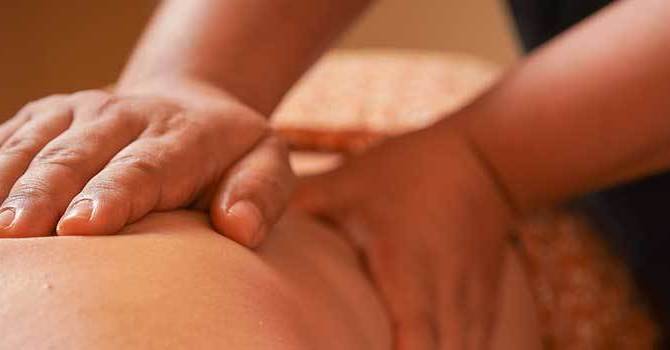The Many Positives of Integrated Care During Breast Cancer Treatment
In 2024, it's estimated that approximately 30,500 Canadian women will be diagnosed with breast cancer. This makes it the most common cancer among women in Canada. The treatments for breast cancer will vary depending on how early the tumour is spotted, the size of the cancerous area and whether the cancer has spread to other regions. In most cases, a combination of surgery and chemotherapy will make up the treatment plan, and this will be overseen at every stage by a medical professional.
If you or someone you know has received a breast cancer diagnosis, this naturally comes with a lot of worry and uncertainty. Feeling as though you are not in control of what is happening or how to solve the problem is a common theme among breast cancer patients, and many look for ways to gain a bit of agency over their situation. This blog will outline some simple things that can be done to help improve recovery from breast cancer, and avoid recurrence post-surgery. Please note these suggestions are NOT a replacement for medical treatment, rather they are to be seen as complementary to the medical treatments, and take a holistic view of the individual that helps them to feel their best throughout and after treatment.
Exercise During Breast Cancer Treatment
One of the most beneficial things you can do during breast cancer treatment is to maintain a regular programme of exercise. This has been shown to reduce the risk of dying from breast cancer by as much as 34%, and reduces the risk of recurrence by between 20 and 40%. Indeed, inactivity has been shown to be a greater risk to survival following a breast cancer diagnosis than being overweight.
Beyond just the stats around survival and recurrence, exercise has numerous other benefits for those battling breast cancer. It can help counter the side effects of treatments, which include osteoporosis, weight gain and fatigue. Exercising regularly will also help reduce loss of muscle tone, which in turn will help minimise any post-treatment pain. And of course, the endorphins released during exercise, and the subsequent reduction in cortisol will help maintain positive mental wellbeing.
Recommended levels of exercise for breast cancer patients are actually the same as for the general population: 150 minutes of moderate exercise, or 75 minutes of vigorous exercise per week.
This should also be combined with some strength training a couple of times a week. If this all feels a bit overwhelming, don’t worry. We understand that getting your running gear on or heading down the gym might be the last thing you feel like doing after a round of treatment, which can often leave you feeling fatigued. However, any exercise is better than none. Start slowly and build up as and when you are ready. Walking is a great way to get started, not least because it is easy to find partners to accompany you and help motivate you. If you are the kind of person who likes to set goals, walking also makes it easy to do this.
Other activities you may wish to include as part of your exercise programme are housework, gardening or even just walking to the grocery store. It all counts – and it all makes a difference.
In short – while it might feel as though resting is the best thing you can do whilst undergoing breast cancer treatment, don’t forget that exercise has some significant benefits as well, and will only do positive things for your recovery.
Nutrition
People undergoing cancer treatment often ask whether there is a particular diet they should be following. There’s no question that the foods you eat will make a big difference to how you feel and how effectively you recover. If your clinician has given you advice that’s specific to your condition, then you should follow that advice. If you’ve not been given specific advice, then the section below includes some suggestions which should be helpful.
At a time when lots of your life is regimented around treatment dates, being tied in to a specific dietary plan can be difficult, so instead you can adopt what is referred to as an ‘abundance model’. No calorie counting. Eat as much as you want, but make sure that the foods you eat are, as much as possible, wholesome and nutritious.
This last point is important: while it’s tempting to revert to comfort foods during difficult times, eating too much sugar, refined flour and fast food will have an inflammatory effect on your body, and can impede recovery from treatment. Controlling sugar intake is particularly important, as regulating insulin levels during cancer treatment can cut recurrence rates by as much as 50%, and has been shown to decrease mortality rates by two thirds.
So what should you be eating? Well, as you can probably guess, a good range of fruits and vegetables daily is recommended, with dark, leafy greens particularly beneficial for their muscle and bone strengthening qualities. Foods with anti-inflammatory properties such as olive oil, tomatoes, and garlic, as well as spices such as ginger and turmeric, are also highly recommended. Similarly, foods that are high in anti-oxidants, such as blueberries, goji berries, green tea and dark chocolate will help the body cope with treatment and counter fatigue.
All of which sounds great, but of course, during chemotherapy there is every chance that you may not feel like eating, with reduced appetite, nausea, and sores in the mouth all common side effects. If you are struggling with reduced appetite, eating little and often, aiming for 6 small meals a day rather than three big ones can help. Drinking smoothies can also be a good way to get the nutrition you need. Eating little and often is also a good tactic if you experience nausea following your chemotherapy. In this case, making sure you take on lots of fluids, and drinking herbal teas such as ginger and peppermint can help settle the stomach. Finally, if you experience sores in the mouth following treatment, this can be eased by using a gentle brush on your teeth, eating soups and smoothies, and soothing the affected area with ice cubes.
One final thing to bear in mind with regards to food preparation during chemotherapy is that your immune system is often compromised at this time, with a drop in the white blood cells that prevent infections. This means that extra attention should be paid to hygiene of food preparation areas.
Massage Therapy During Breast Cancer Treatment
You may have heard that massage therapy is not appropriate when undergoing cancer treatment, as there is a concern that massage will cause the cancer to spread around the body. However, seeing a skilled massage therapist will allow you to experience all the benefits of massage without any negative side effects.
Indeed, alongside a healthy diet and regular exercise, massage therapy is one of the best things you can do in a programme of integrated care. Massage can help improve immune function by assisting lymphatic drainage and by increasing natural ‘killer cells’ that help our bodies fight infection. Following treatment, it can also lower the risk of, or help to manage lymphoedema.
Beyond this, massage has many positive effects on your wellbeing, promoting relaxation, reducing stress, and contributing to improved mood. It has also been shown to reduce nausea significantly in chemotherapy patients.
A registered massage therapist will put your needs as the patient first, and will focus on your specific situation and goals for the session. Whether the aim is to restore full movement and reduce pain following surgery, to promote a feeling of ‘acceptance’ post-surgery, or simply to promote wellbeing and relaxation, massage is a great way to cope with the undoubtedly traumatic experience of undergoing breast cancer treatment. Talk to your massage therapist about a programme of treatment that could work for you.
In Summary
A programme of integrated care, focusing on diet, exercise and including some massage therapy can make a significant difference to your recovery and mood during your breast cancer treatment. While none of the advice given in this blog should be seen as a replacement for medical treatment, taking control of these other areas of your life and recovery will only have positive effects for your health and wellbeing.



